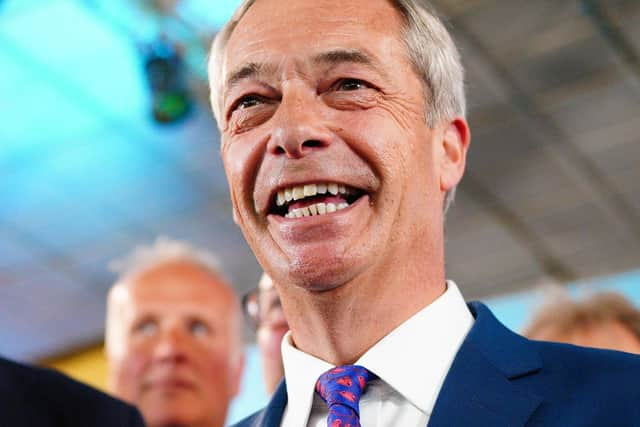Why Reform is standing paper candidates in Scotland with no listed photo or social media presence
Looking through Reform’s candidates in Scotland, you’d be forgiven for thinking they had forgot to update their campaign website.
For many of Scotland’s seats, Reform’s website simply shows a name, with no photo, biography or social media presence to gauge who this person is and whether they are a worthy candidate.
Advertisement
Hide AdAdvertisement
Hide AdHowever, this ignores the fundamental role expected of some of the candidates – they are not running to win. They are what is known as “paper candidates” – names on the ballot box so a party can say they have contested every seat. Paper candidates allow the party to rack up its total vote share in areas it knows it cannot win and at the same time have the appearance of being a big party fighting in all areas.


A paper candidate will also often do no campaigning, therefore be able to submit a zero return of election expenses, simplifying the paperwork for the election agent. Some stand to help the party, others do it under the strict assurance they will not actually win.
It’s not a new phenomenon and it’s certainly not exclusive to Reform, with all parties fielding these types of candidates in seats they don’t expect to take. Speaking to candidates who are hoping to win, they regard them as either irrelevant or a nuisance.
One complained they were a “vote bucket” that could be the difference between a win and a loss, through tactical voting. Another told The Scotsman of a Labour paper candidate who put leaflets out for a week, then on election day encouraged people to vote Lib Dem to stop the Tories.
It also gives parties a presence in seats where they might not have much of a campaign or a history of winning seats.
For Reform, it represents a chance to stop the Tories winning seats, further advancing party leader Nigel Farage’s albeit ambitious pledge to replace the Conservatives as the party of opposition. With Reform strongest in seats previously won by the Tories in 2019, or those where Rishi Sunak’s party are a close second, their presence damages the Conservatives more than the other parties.
It lays the foundations for growth and adds depth to the argument this is not just about Mr Farage, but a new force in politics.
Comments
Want to join the conversation? Please or to comment on this article.
